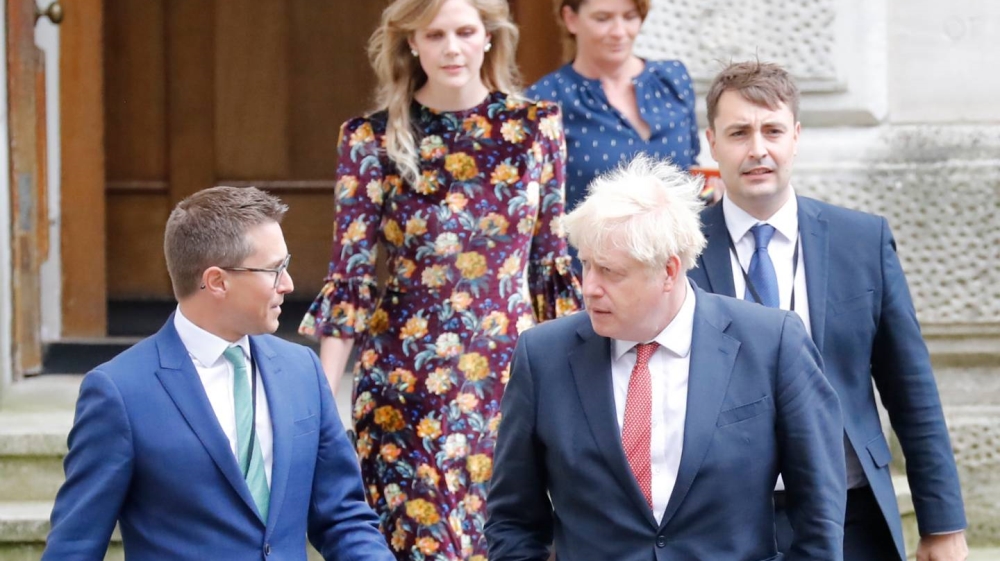UK COVID resurgence: Social gatherings to be strictly limited
At least 2,460 new infections were reported on Tuesday – a sharp rise from levels of around 1,000 per day in August.

Tough new lockdown restrictions on social gatherings across England are to be announced on Wednesday as British Prime Minister Boris Johnson tries to control a resurgence of coronavirus infections.
From September 14, gatherings will be limited to no more than six people with fines for those who fail to comply, Johnson is expected to announce.
Keep reading
list of 4 itemsMexico’s teachers seek relief from pandemic-era spike in school robberies
‘A bad chapter’: Tracing the origins of Ecuador’s rise in gang violence
Why is the US economy so resilient?
The number of cases in the United Kingdom has begun to rise sharply again in recent days.
There were 2,460 new infections reported on Tuesday, 2,948 on Monday and 2,988 on Sunday – a sharp rise from levels of around 1,000 per day in August and attributed to high levels of transmission among young people.
Scotland, Wales and Northern Ireland, which together make up the United Kingdom, set their own lockdown policies.
Although testing is more widespread, and the number of people in hospital is well below the country’s peak, the government fears the outbreak is beginning to slip out of control.
|
|
“We need to act now to stop the virus spreading,” Johnson said in a prepared statement.
“So we are simplifying and strengthening the rules on social contact – making them easier to understand and for the police to enforce.”
The previous limit on the number of people who could socialise together was 30.
Vaccine setback
The new rules will not apply to workplaces or schools, and there will be exemptions for weddings, funerals and some organised team sports.
Nevertheless, the move represents a backwards step in Britain’s recovery from a pandemic that inflicted more deaths and more economic damage on the country than it did on other countries in Europe and has prompted widespread criticism of Johnson’s leadership.
The decision will harm attempts to convince a sceptical public that it is safe to return to their workplaces – something Johnson and his ministers spent much of last week trying to do in a bid to limit the economic damage to town and city centres.
“We’ve been able to relax a bit over the summer … but these latest figures really show us that much as people might like to say ‘Oh well, it’s gone away’ – this hasn’t gone away,” said Dr Jonathan Van-Tam, the government’s deputy chief medical officer.

He said that while the rise in infections is “much more marked” among people between the ages of 17 and 21, he was concerned about a “more general and creeping geographic trend” across the UK.
“People have relaxed too much,” he said. “Now is the time for us to re-engage and realise that this is a continuing threat.”
The latest development comes as AstraZeneca announced a pause in trials of the COVID-19 vaccine it is developing with the University of Oxford, after one of the participants fell ill.
“Our standard review process was triggered and we voluntarily paused vaccination to allow review of safety data by an independent committee,” company spokeswoman Michele Meixell said in an emailed statement.
The study is testing a COVID-19 vaccine being developed by AstraZeneca and University of Oxford researchers at various sites, including the UK, where the illness was reported.